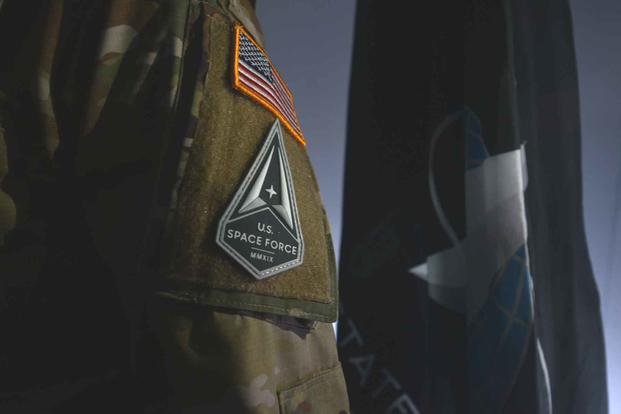- Dec 3, 2006
- 2,402
- 889
- 59
- Country
- United States
- Faith
- Baptist
- Marital Status
- Married
- Politics
- US-Republican

What Does the Space Force Do? 4 Years After Its Birth, Glimpses of the Service's Mission Emerge
Due to the highly classified nature of the Space Force's operations, broadcasting what it does is often not possible, especially when many Guardians work from sensitive information facilities on carefully guarded military installations.
COLORADO SPRINGS, Colorado -- Staring at the computer screen in an office complex not too far from Schriever and Peterson Space Force Bases, a Guardian had a rapidly diminishing timer with only eight minutes left to carefully type in the complex computer code needed to hack an enemy satellite.
The low-Earth orbit satellite, which was traveling at roughly 18,000 miles an hour, was reportedly gathering intelligence about U.S. military assets across the Midwest, Southeast, Gulf of Mexico and Eastern Seaboard on four passes -- leaving only a small contact window in which the Guardians could work to stop the enemy from collecting photos and reconnaissance.
Their plan was to slowly redirect the satellite's camera away from its intended targets by a few degrees each pass, a subtle averted gaze so as not to arouse suspicion. But if the enemy noticed any small changes, the Guardians' cover could be blown. One young specialist came up with the idea to send the operator false data, so the enemy would think it was business as usual. Then, once their mission was complete, they'd hack into the logs and erase them, hiding all traces they were even there.
A single mistype could shut down the whole operation or, worse, blow their cover. After the eight minutes, a quiet settled into the laboratory as the contact window closed and connection with the enemy's satellite was lost. It would be another hour before another pass and a chance to inflict further damage on the enemy. In the downtime, the Guardians grabbed snacks, checked their text messages and, at one point, talked about comic book collections.
The November exercise -- a simulation put on at the nonprofit Stephenson Stellar Corporation's headquarters in Colorado Springs -- was targeting the "People's Republic of Atlantica," a "small but potent threat" that has "assumed a partnership with a great Power Competitor." The imagined scenario offered a rare glimpse into the very real approaches that Space Force Guardians could use to hack, defend, operate and control an enemy's satellite, strategies the service remains tight-lipped about as it tries to preserve a competitive edge.
On Dec. 20, the Space Force is celebrating four years as a service. The smallest military branch, with around 8,600 service members, it's shrouded in more secrecy than many of the others, leading to a seemingly perpetual question from the public: "What does the Space Force do?"
